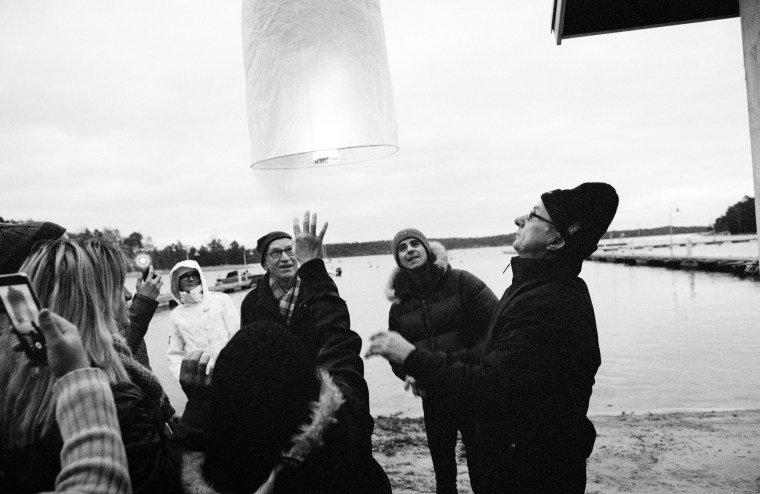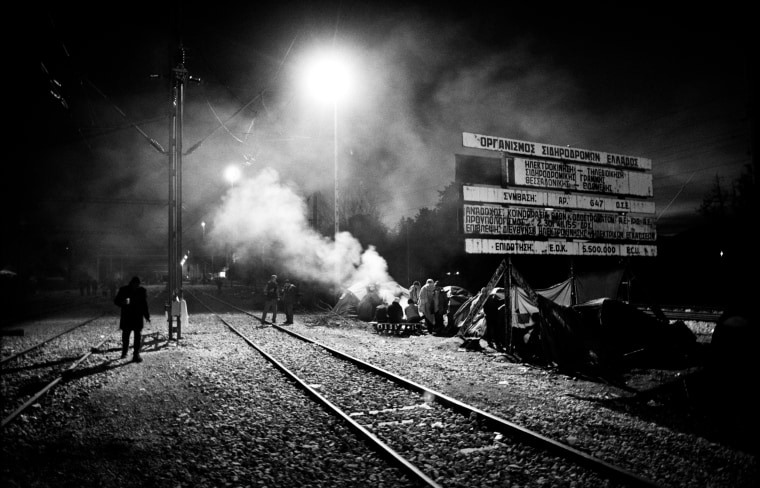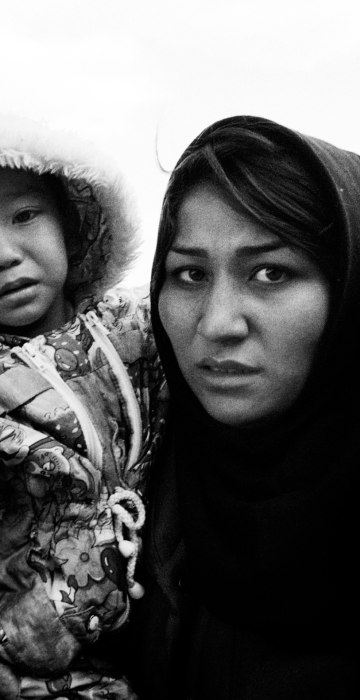
Photo
Triple Amputee Giles Duley Photographs Captivating Images of Migrant Life
Triple amputee photographer Giles Duley doesn't let his injuries stop his passion of understanding people and telling their stories.
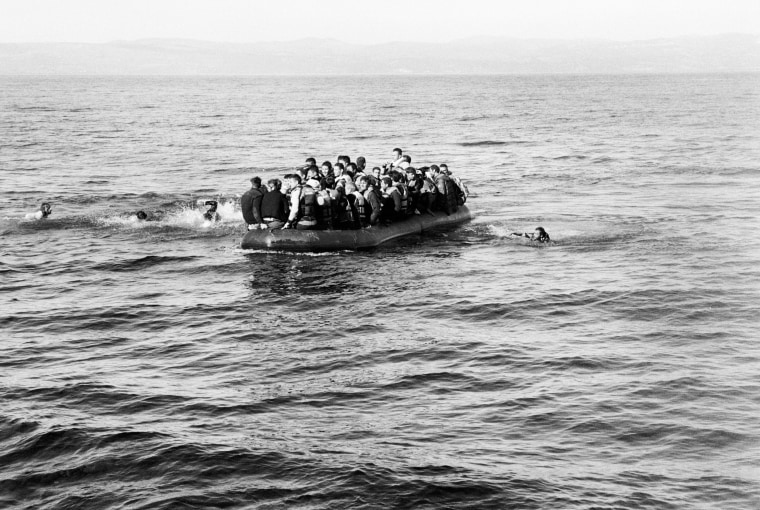
Photographer Giles Duley believes there is a chance to make a difference with even one picture. The London native was working in Sangsar, Afghanistan when he stepped on a landmine. He has endured more than 30 operations in the five years since.
Duley draws on his survival to help reach and photograph refugees, whose lives and bodies have been ripped apart by war.
Above: An overcrowded boat of refugees heads to the shore. Two men had fallen from the boat; they were rescued by volunteer Spanish Lifeguards in Lesvos, Greece on Oct. 28, 2015.
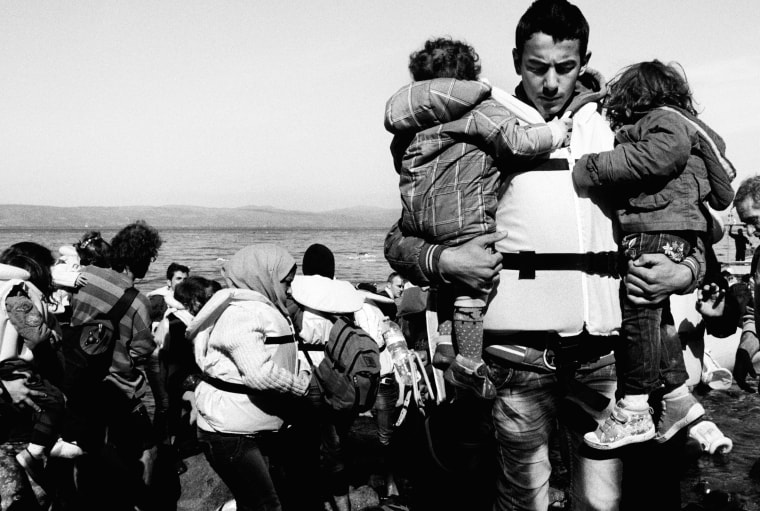
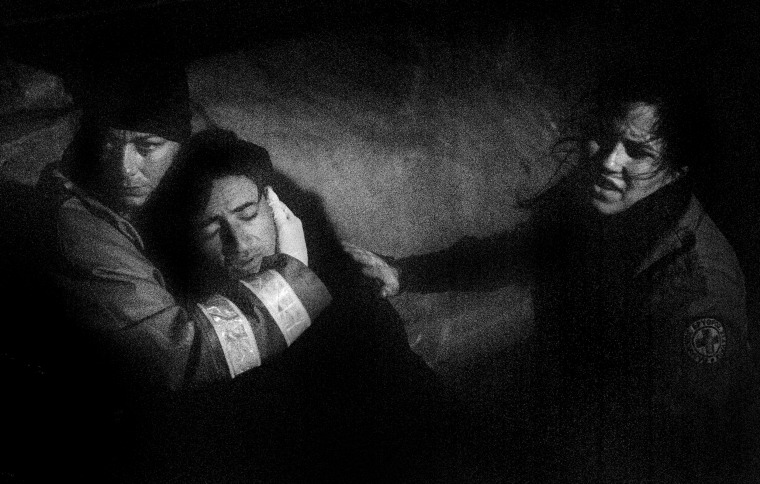
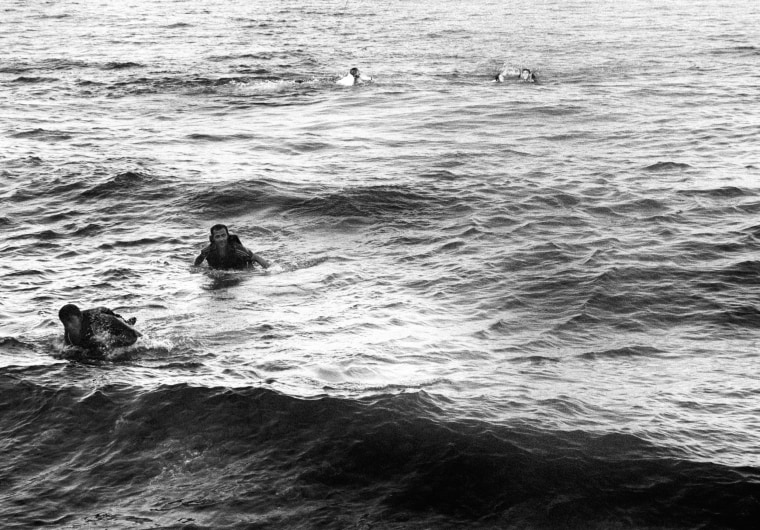
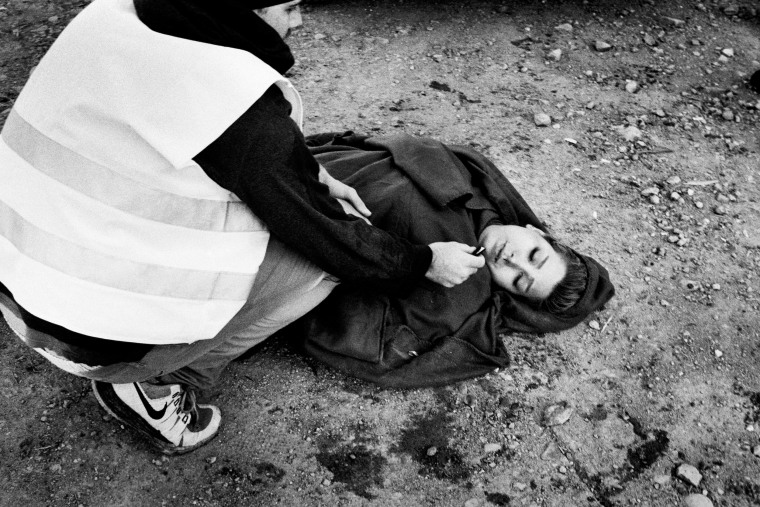
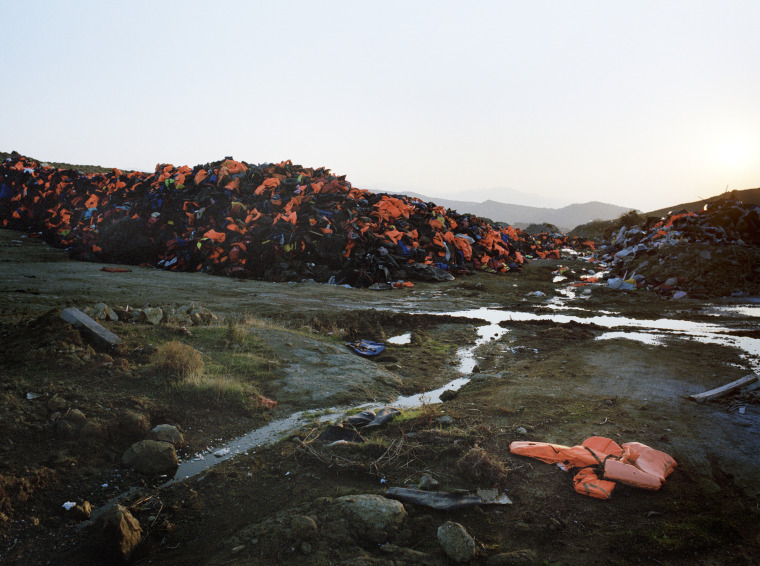

An Afghan mother holds her child moments after landing on the beach near Skala Sykaminia, on Oct. 26, 2015.
The United Nations High Commissioner for Refugees (UNHCR) and its partners are working to prevent family separations and create safe areas for women and children who are particularly vulnerable.
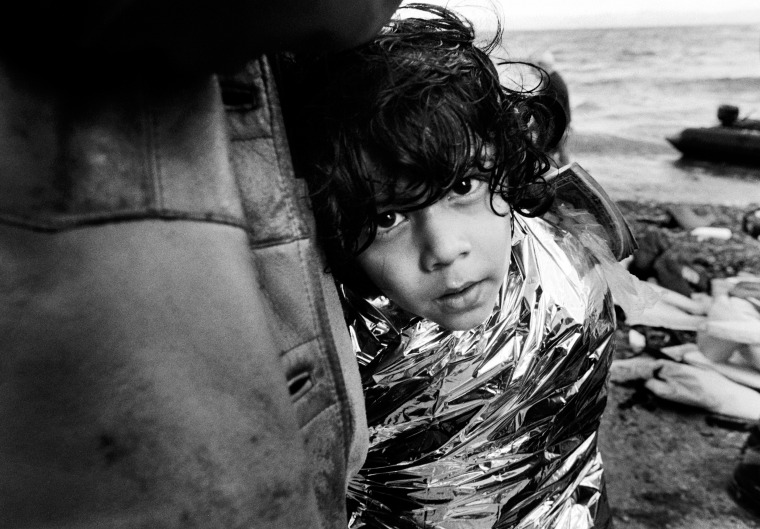
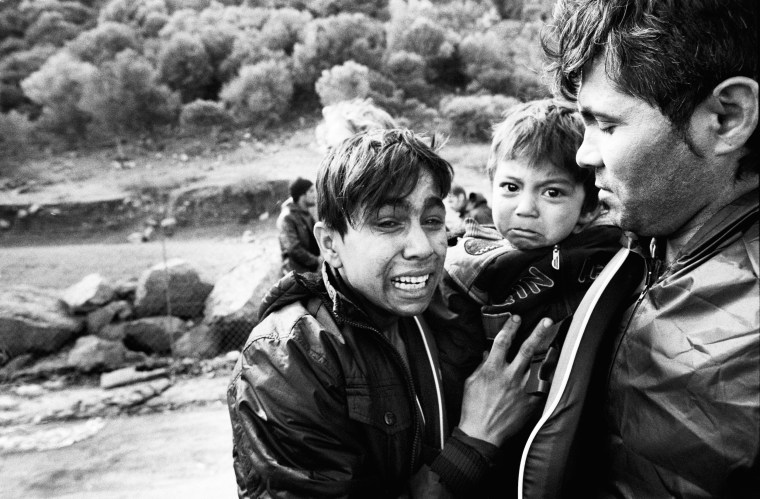
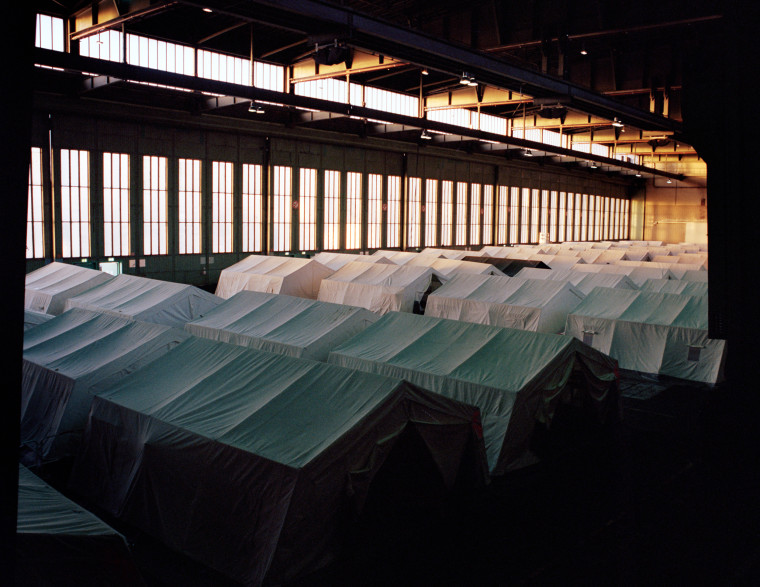
Struggling to find accommodation for the one million refugees and asylum seekers that have entered Germany in the past 12 months, the authorities have been using abandoned and vacant buildings across the country, such as the one pictured above.
The photo was taken in Berlin, Germany on Dec. 23, 2015.
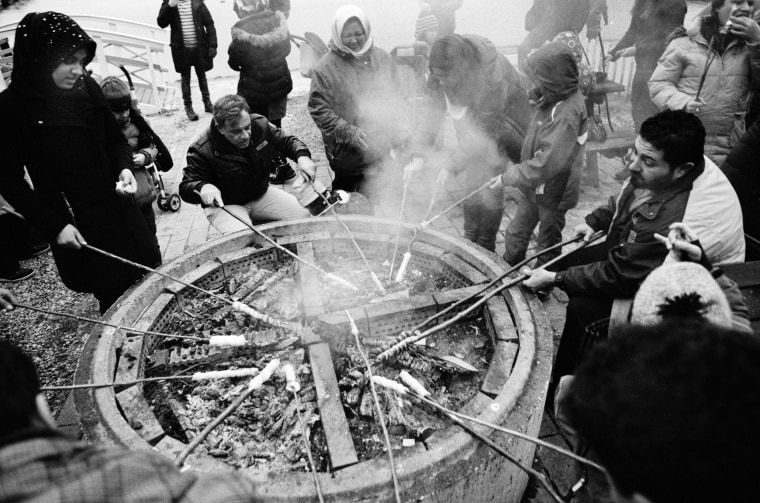
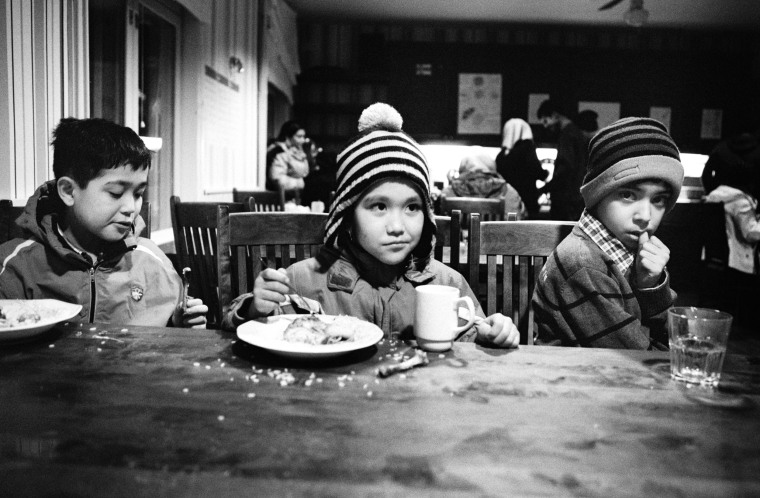
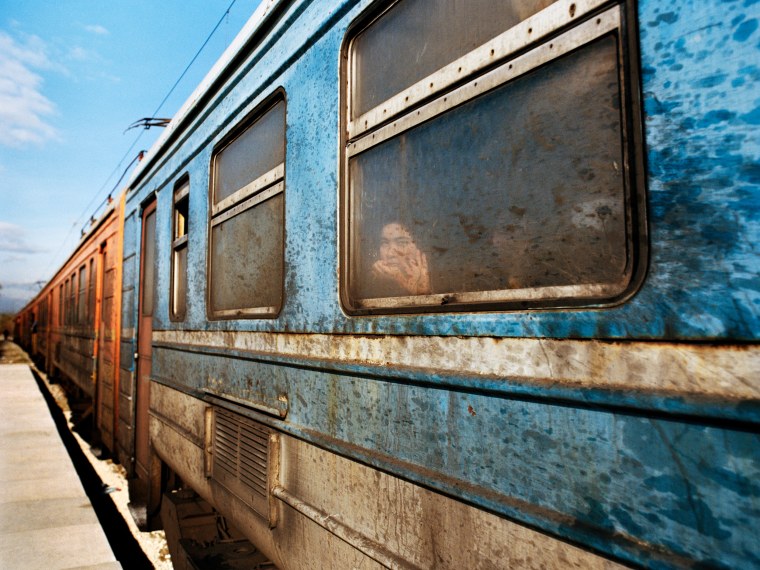
A refugee peers from a train in former Yugoslav Republic of Macedonia on Nov. 28, 2015.
Duley asked a young Syrian man why he had travelled to Europe when many of his friends and family had stayed. "It’s simple," he replied. "I was the first to give up hope. I was the first to realize there is no more Syria."
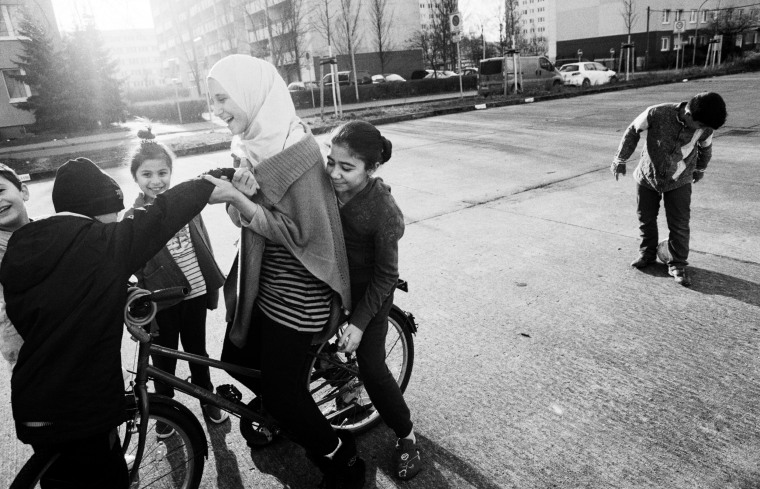
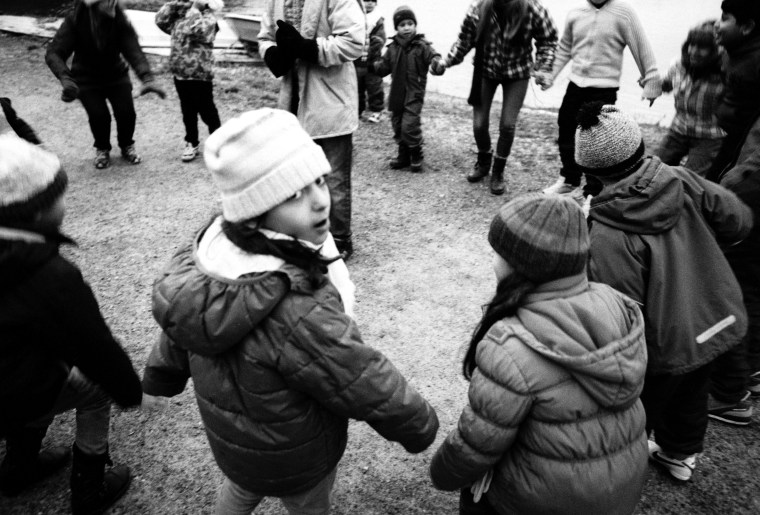
For many refugees it's hard to leave behind the memories of what they have witnessed and who they have left behind or lost. The Finnish Red Cross and volunteers try their hardest to engage them with activities and reinforce the knowledge that they are welcome.
The picture above was taken in Nagu on Dec. 29, 2015.
